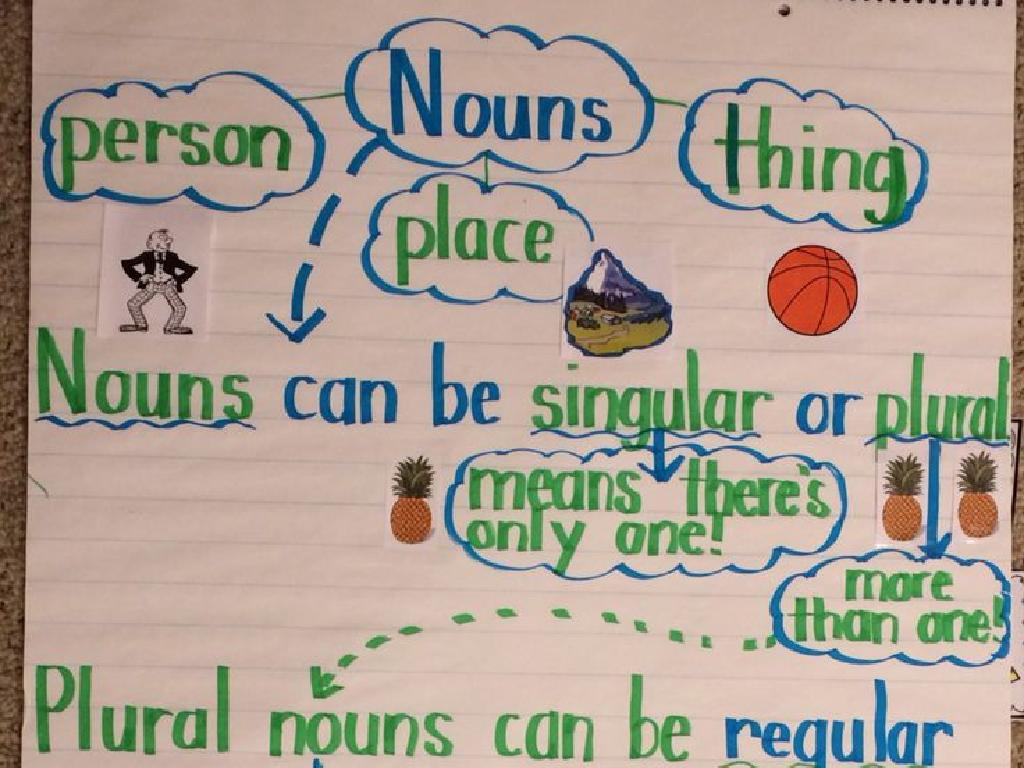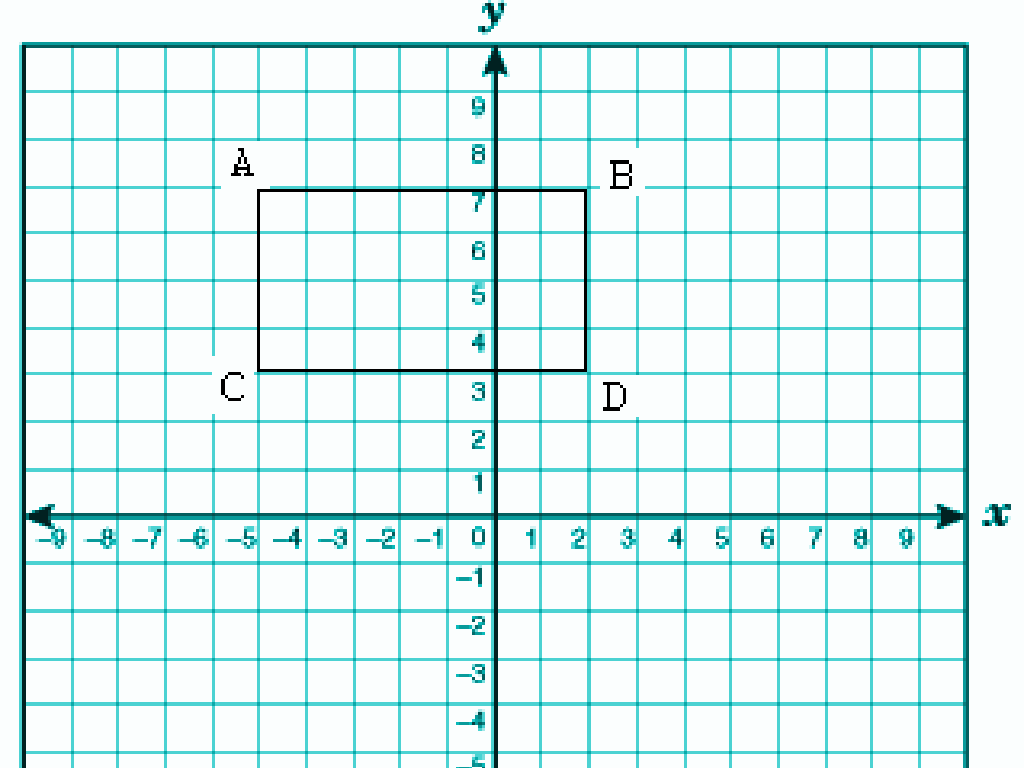Use Words As Clues To The Meanings Of Greek And Latin Roots
Subject: Language arts
Grade: Fifth grade
Topic: Greek And Latin Roots
Please LOG IN to download the presentation. Access is available to registered users only.
View More Content
Unlocking Word Meanings: Greek and Latin Roots
– Discover language building blocks
– Roots: Foundation of words
– Roots give words their core meaning, like ‘spect’ means to see.
– Greek & Latin roots in English
– Many English words are derived from Greek and Latin roots.
– Examples of common roots
– ‘Tele’ means far, ‘phone’ means sound. Telephone: sound from far away.
|
This slide introduces students to the concept of Greek and Latin roots, which are the building blocks of many English words. Understanding these roots can help students decipher the meaning of unfamiliar words. Begin by explaining that roots are the base part of a word that holds the primary meaning. Show how these roots are combined with prefixes and suffixes to form complete words. Provide examples of common roots and how they appear in words they might already know, such as ‘telescope’ (tele – far, scope – see) or ‘photograph’ (photo – light, graph – write). Encourage students to think of other words that might contain the same roots. This foundational knowledge will aid them in expanding their vocabulary and improving their reading comprehension.
The Power of Greek and Latin Roots
– Expand your vocabulary
– Understanding roots helps you guess the meaning of new words.
– Improve your spelling skills
– Knowing roots can make spelling easier and more intuitive.
– Enhance reading comprehension
– Roots give clues to the meaning of words in stories and texts.
– Prepare for advanced learning
– A strong root knowledge builds a foundation for future learning.
|
This slide aims to explain the importance of learning Greek and Latin roots for language development. By understanding the building blocks of many English words, students can more easily deduce the meanings of unfamiliar words, which is a valuable skill for expanding their vocabulary. Additionally, this knowledge can aid in improving spelling by recognizing patterns and commonalities in word construction. Comprehension of texts is enhanced when students can quickly understand the meaning of complex words, which often have Greek or Latin origins. Lastly, mastering these roots at an early age sets students up for success in higher-level academic pursuits, where advanced vocabulary is frequently encountered. Encourage students to be detectives, looking for roots in words during their reading assignments and daily life.
Unlocking Word Meanings with Greek Roots
– ‘photo’ means light
– ‘graph’ means write
– Words like ‘photograph’
– ‘photo’ + ‘graph’ combines to mean light writing
– More examples: ‘telegraph’, ‘biography’
– ‘tele’ means far, ‘bio’ means life
|
This slide introduces students to the concept of Greek roots in English words, which helps them decipher unfamiliar vocabulary. By understanding that ‘photo’ relates to light and ‘graph’ to writing, they can deduce the meanings of words like ‘photograph’ (writing with light) and ‘telegraph’ (writing from afar). Similarly, ‘biography’ combines ‘bio’ (life) with ‘graph’ to mean writing about someone’s life. Encourage students to think of other words they know that include these roots, and discuss how the meaning of the root contributes to the meaning of the whole word. This understanding of word parts is a valuable tool for expanding vocabulary and improving reading comprehension.
Unlocking Word Meanings with Latin Roots
– ‘spect’ means to look
– Like in ‘inspect’ (to look over)
– ‘port’ means to carry
– Like in ‘transport’ (to carry from one place to another)
– Examples: inspect, spectator
– Examples: transport, portable
|
This slide introduces students to the concept of Latin roots, which are the building blocks of many words in the English language. Understanding these roots can help students decipher the meanings of unfamiliar words. ‘Spect’ is a root that means to look, and it appears in words like ‘inspect’ (to look over carefully) and ‘spectator’ (a person who watches something, such as a sporting event). ‘Port’ is another root meaning to carry, seen in words like ‘transport’ (to carry something from one place to another) and ‘portable’ (something that is easy to carry). Encourage students to think of other words they know that include these roots, and discuss how the meaning of the root fits with the meaning of the whole word.
Unlocking Word Meanings with Greek and Latin Roots
– Break words into roots and affixes
– Roots are word parts that carry meaning; affixes are prefixes or suffixes.
– Infer meanings using known roots
– If you know ‘tele’ means far, you can guess ‘telephone’ involves distance.
– Practice: ‘microscope’
– ‘Micro’ means small; ‘scope’ means to look. A microscope is used to look at small things.
– Practice: ‘telephone’
– ‘Tele’ means far; ‘phone’ means sound. A telephone is used for sending sound over distance.
|
This slide aims to teach students how to dissect unfamiliar words into their Greek and Latin roots and affixes to understand their meanings. By recognizing and understanding common roots, students can infer the meaning of new words. For example, ‘microscope’ combines ‘micro’ (small) and ‘scope’ (look) to mean an instrument for looking at small objects. Similarly, ‘telephone’ combines ‘tele’ (far) and ‘phone’ (sound) to mean a device for transmitting sound over distance. Encourage students to practice with these examples and to apply this strategy to other new words they encounter. This foundational skill will enhance their vocabulary and reading comprehension.
Root Word Detective Activity
– Become a root word detective
– Work together in small groups
– You’ll be assigned to a team to collaborate
– Analyze your list of words
– Look for the Greek or Latin root in each word and guess what it means
– Share your discoveries
– Discuss what you’ve learned with everyone
|
In this engaging class activity, students will put on their detective hats to explore the world of Greek and Latin roots. Divide the class into small groups to foster teamwork and ensure that each group has a mix of abilities. Provide each group with a curated list of words that contain Greek or Latin roots. Instruct them to identify the root in each word and use context clues or prior knowledge to infer the meaning. After the investigation, each group will present their findings to the class, allowing students to learn from each other. This activity will enhance their vocabulary and understanding of word origins. Possible words for the activity could include ‘bicycle’ (bi = two, cycle = circle), ‘television’ (tele = far, vision = see), ‘submarine’ (sub = under, marine = sea), etc.
Class Activity: Crafting Words with Roots
– Select a Greek or Latin root
– Mix with prefixes and suffixes
– Invent new words and meanings
– Think about how each part of a word contributes to its definition
– Share your best word with the class
|
This activity is designed to help students understand the structure of words and how roots, prefixes, and suffixes work together to form meaning. Start by explaining Greek and Latin roots and how they form the basis of many English words. Provide examples of common roots and affixes. Then, guide students to use their creativity to combine them into new words, encouraging them to explain the logic behind the meanings they assign. For example, combining ‘tele-‘ (far) with ‘-vision’ (seeing) makes ‘television,’ something for seeing far. Have students present their most creative word to the class, fostering a fun and engaging learning environment. This will help them remember the roots and their meanings.
Wrapping Up: Greek and Latin Roots
– Recap of Greek/Latin roots lesson
– Why word origins matter
– Homework: 5 words with roots
– Find words from books, signs, or your environment
– Write down each word’s meaning
– Use a dictionary or ask someone for help if needed
|
As we conclude today’s lesson, remind students of the key points we’ve covered about Greek and Latin roots. Emphasize how understanding the origin of words can enhance their vocabulary and reading comprehension. For homework, students should find five words that contain Greek or Latin roots, write them down, and research their meanings. This task will help reinforce the lesson and encourage independent learning. Provide examples of common words with Greek or Latin roots to get them started. During the next class, ask students to share the words they found and discuss the roots and meanings. This will allow them to learn from each other and see the practical application of the lesson.






